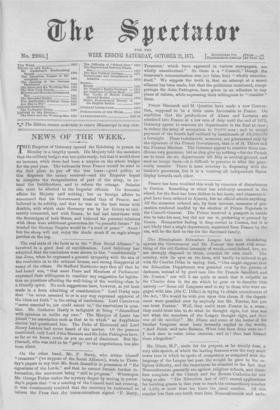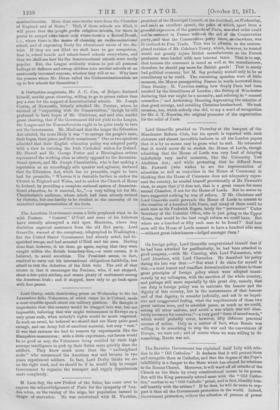Mr. Dixon, M.P., made for his purpose, as he usually
does, a very able speech, of which the leading features were the very much lower tone in which he spoke of compulsion as compared with the language of the League last year, the weight ho gave to the re- ligious difficulty, and the importance he attached to the fact that Nonconformists generally are against religious schools, and there- fore complain of the Church and the Roman Catholics for not being so also. "The Education Act of 1870 caused applications
for building grants in that year to reach the extraordinary number of 3,230, or more than ten times the usual number. Of this number less than one-tenth were from Nonconformists and uncle- nominationalists. More than nine-tenths were from the Churches of England and of Rome." Well, if these schools are filled, it will prove that the people prefer religious schools, for there is power to compel attendance only where there is a School Board, i. e., where there is the means of choosing an undenominational school, and of expressing freely the educational wants of the dis- trict. If they are not filled we shall have to get compulsion, that is, school boards and school-board schools everywhere, and then we shall see how far the denominational schools were really popular. But, the League evidently wishes to put all personal feelings at defiance and sweep children into secular schools at an enormously increased expense, whether they will or no. Why have the persons whom Mr. Dixon called the Undenorninationalists set up so few schools for themselves ?



































